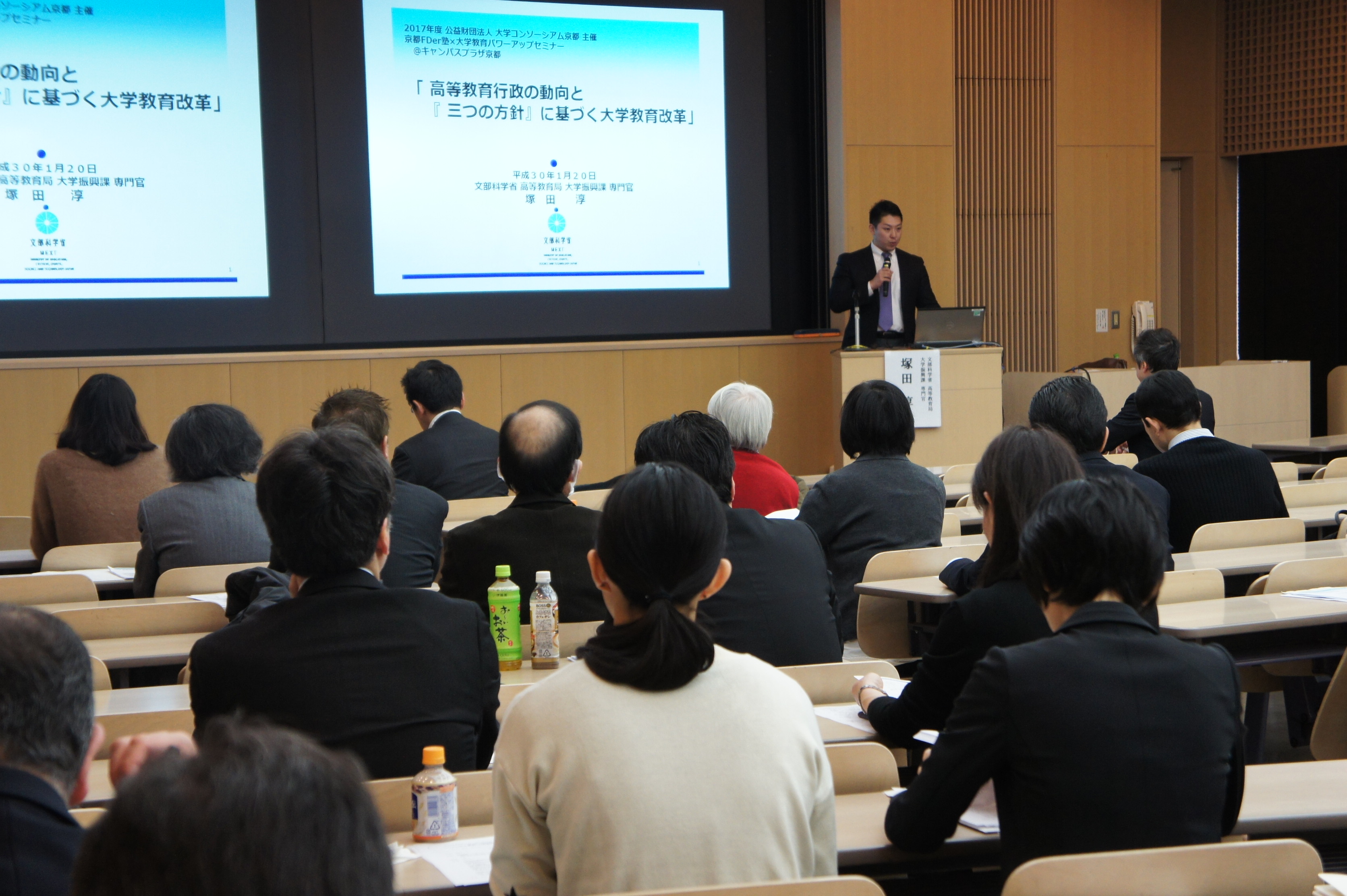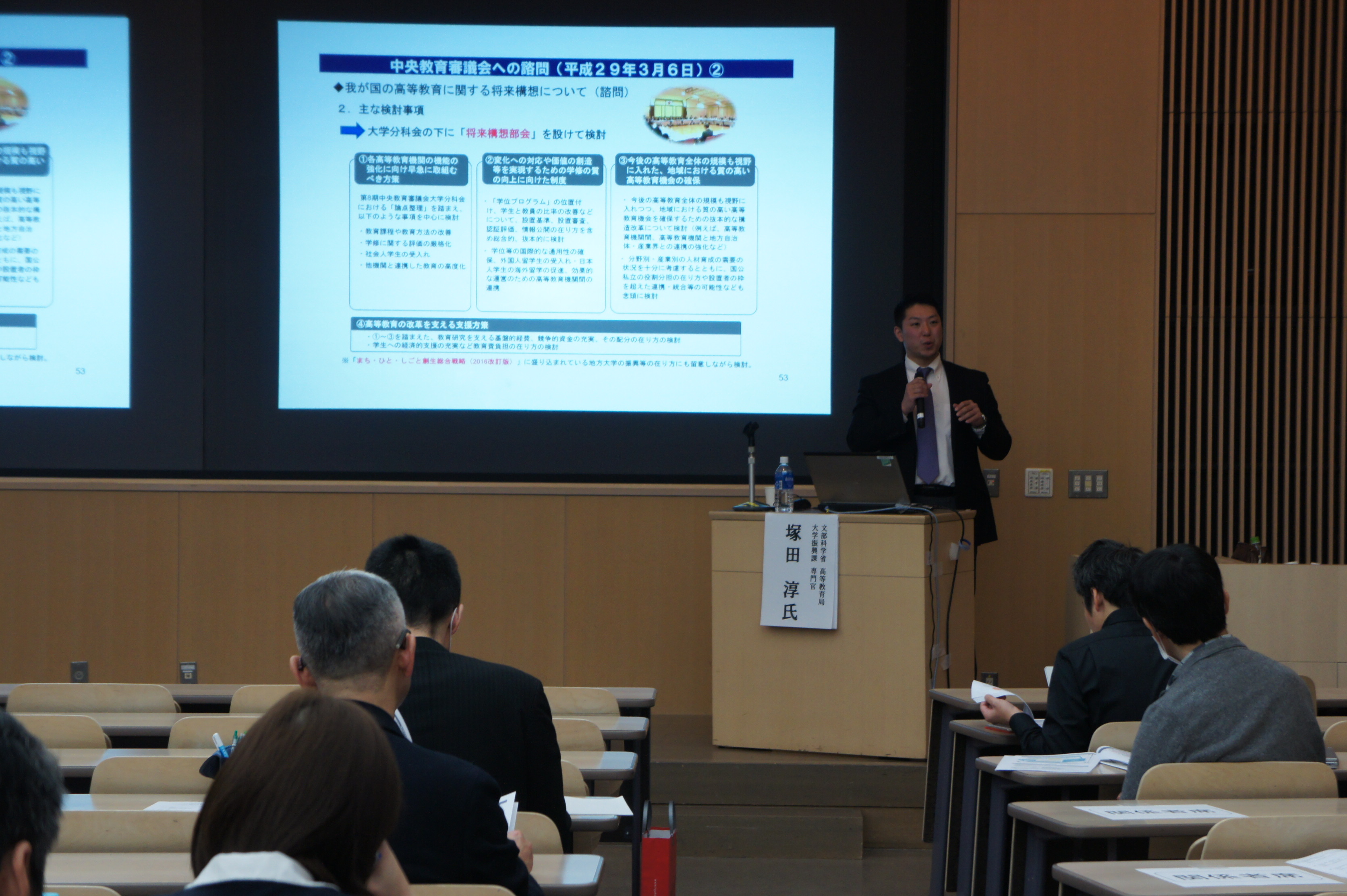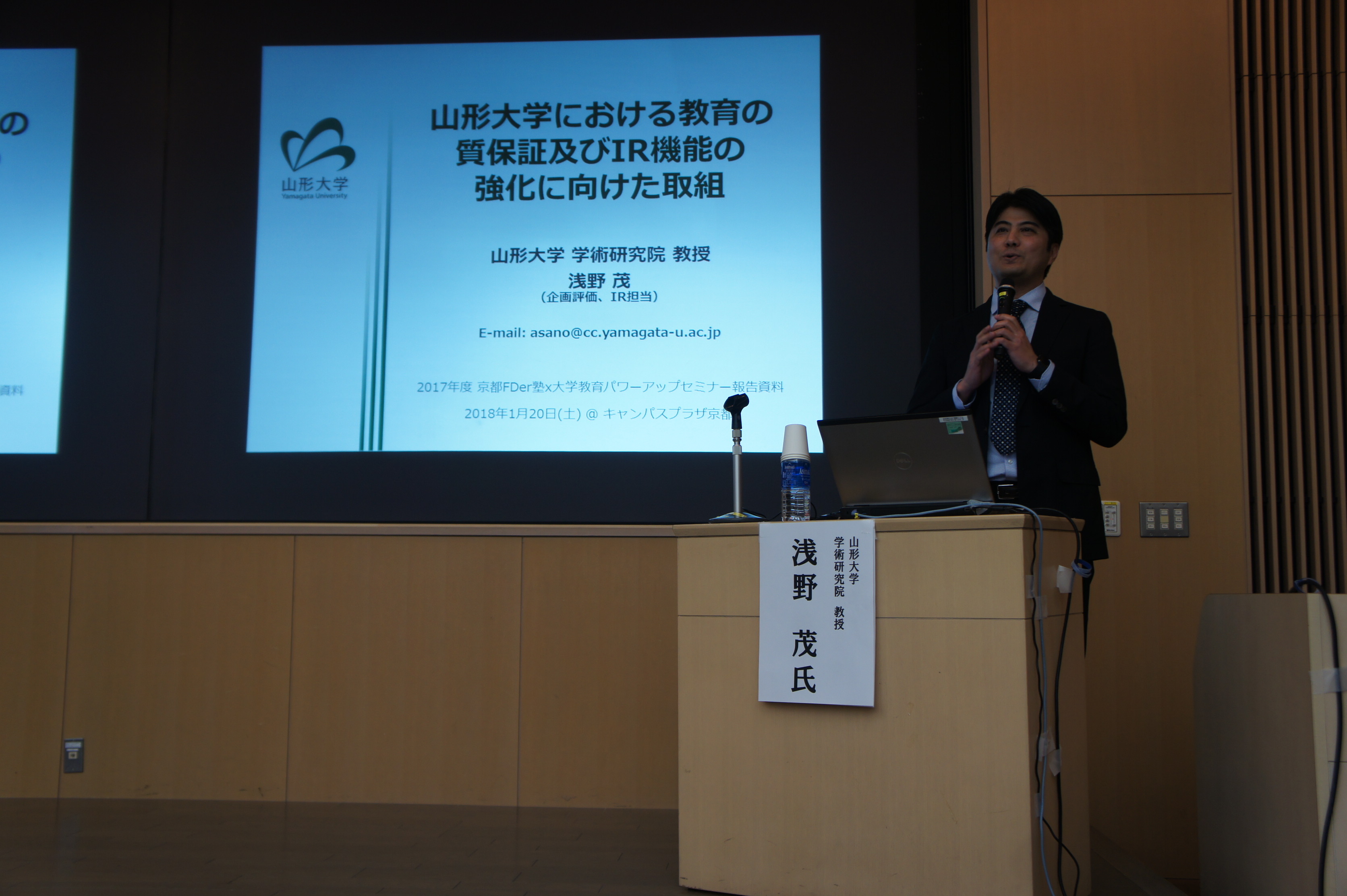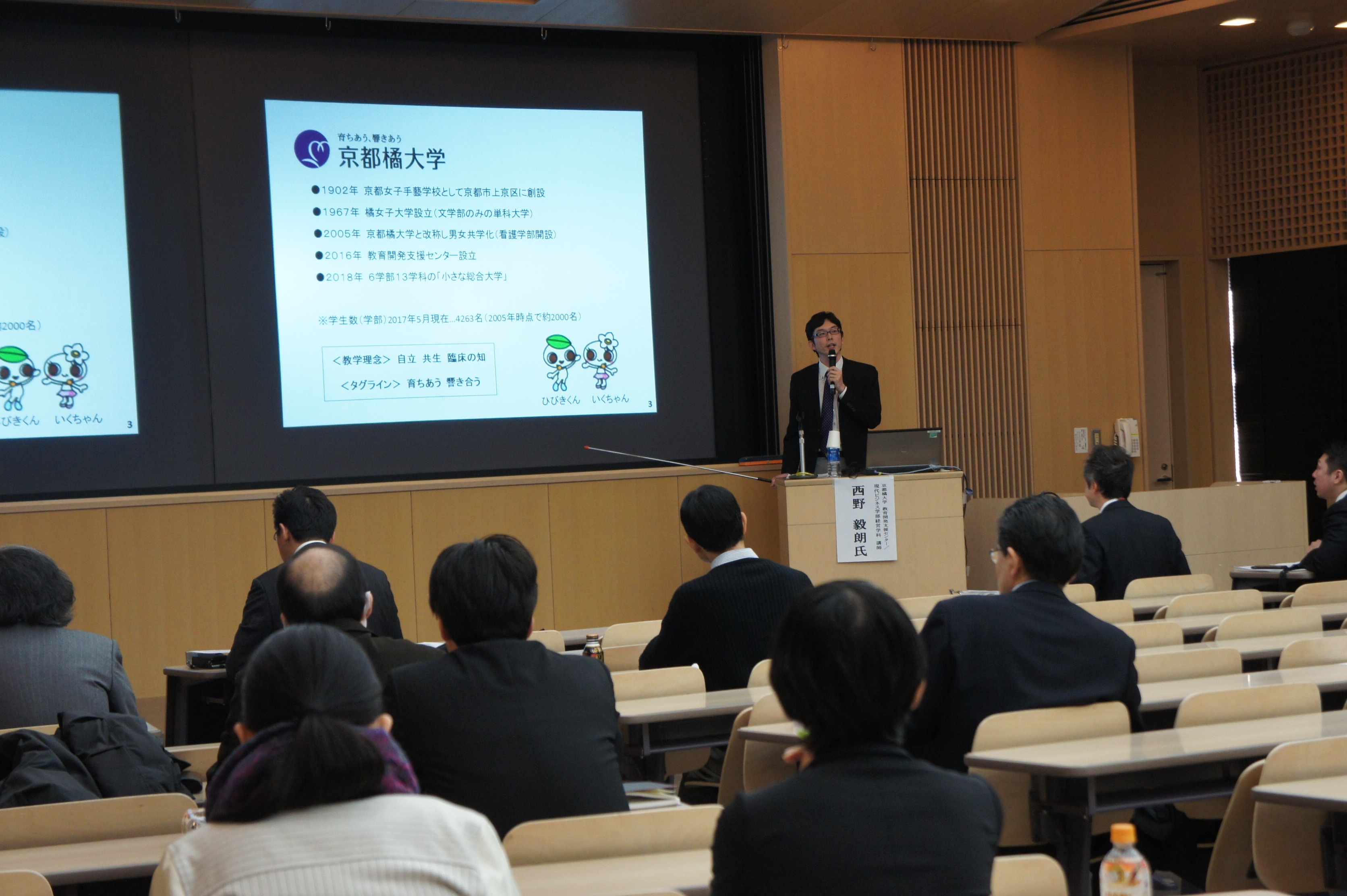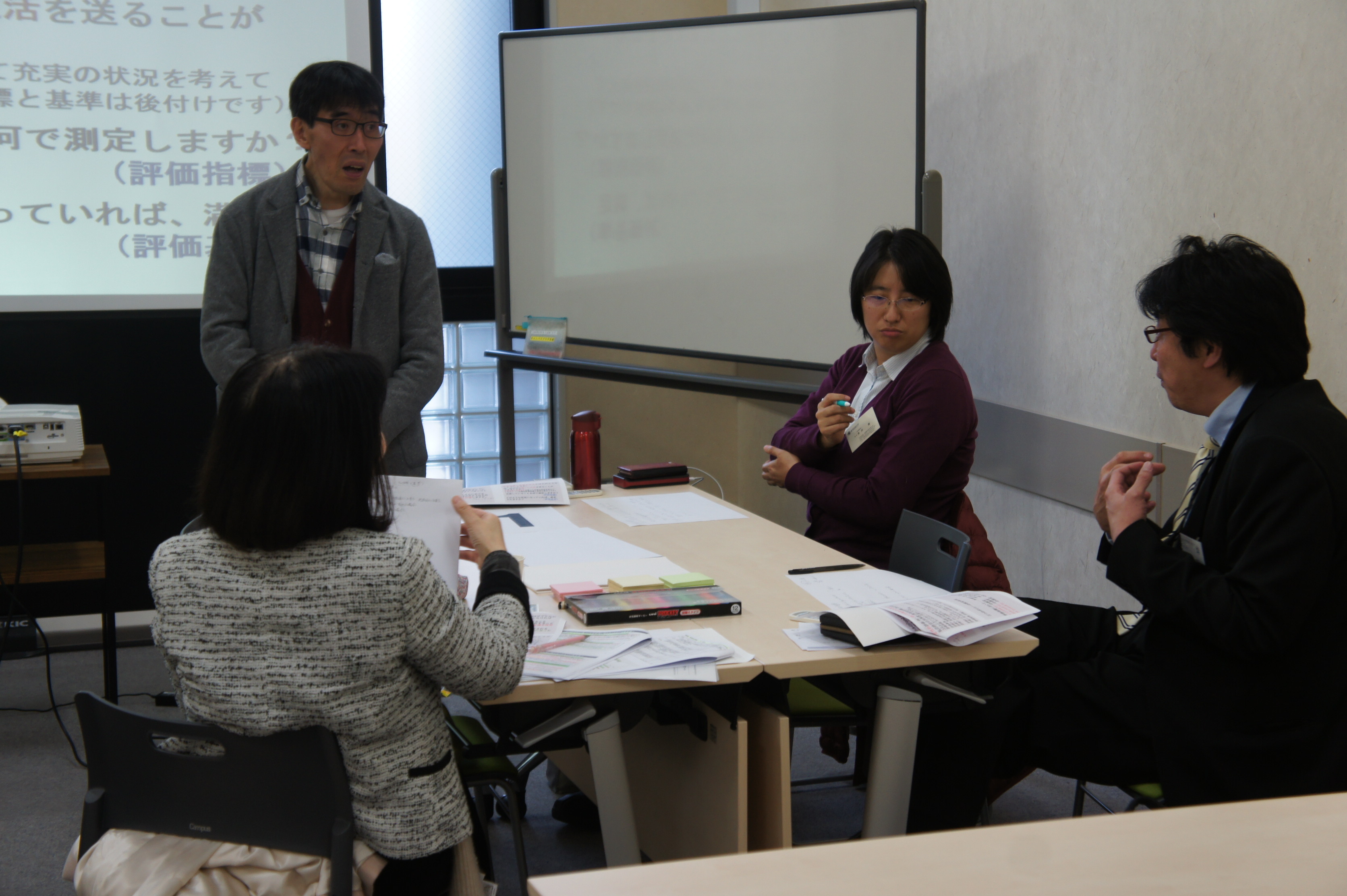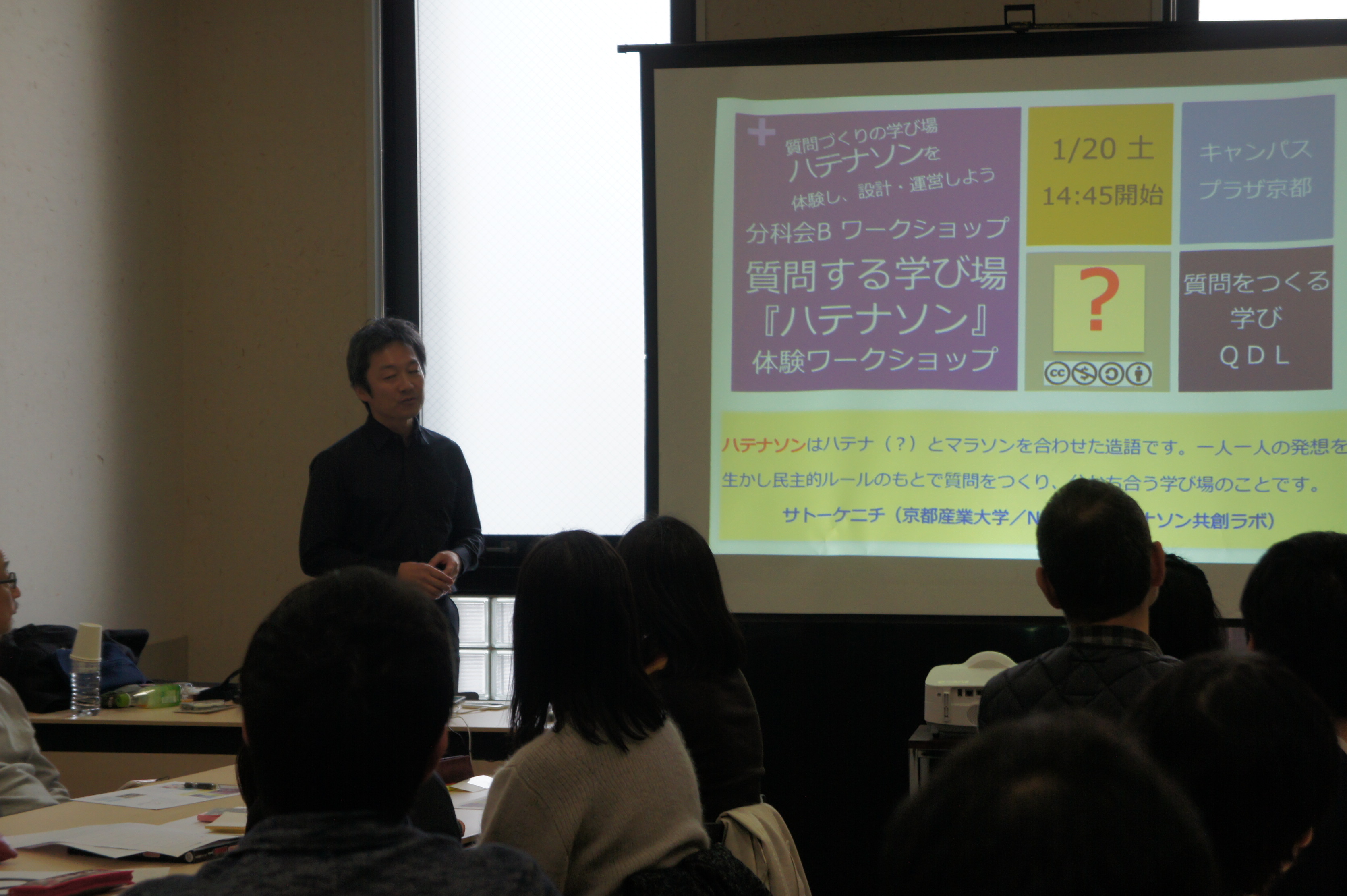Business Overview
As an organizational effort for faculty members to improve and enhance their teaching content and methods, the University Consortium Kyoto has been promoting FD activities in the Kyoto area together with member universities since 1995, shortly after its establishment.
Kyoto FDer Juku is a symposium aimed mainly at faculty and staff who are FD committee members and FD administrative staff at each university and junior college in order to train faculty and staff who will become leaders in FD activities at the member schools of the University Consortium Kyoto.
Outline of the event
(In 2017, it will be held as a joint project with the University Education Power-up Seminar.)
In 2017, as in 2016, it will be held jointly with the University Education Power-up Seminar.
2017 Kyoto FDer Juku × University Education Power-up Seminar Joint Project
Theme: “Thinking about Quality Assurance in Education ~Toward a Qualitative Transformation and Improvement of Education with an Awareness of the Three Policies~”
Each university is required to change the quality of education by realizing university education based on the “Three Policies,” and in 2017, it became mandatory to formulate and publish the “Three Policies” as consistent and consistent. In addition, in the third phase of certification evaluation, the establishment of internal quality assurance will be asked as an important item.
Under these circumstances, there is an urgent need for each university to review the “Three Policies” and to develop and substantiate a system for the establishment of a PDCA cycle based on these policies. However, in order to achieve this, it is essential to instill understanding among individual faculty and staff and to make efforts to transform and improve the quality of education at the field level.
In the keynote speech, he will give a lecture on the background and purpose of why the “Three Policies” are emphasized as the starting point for quality assurance, and in the subcommittees, we will introduce case studies and workshops that are working to ensure and improve the quality of education at the middle and micro levels.
- Date
- Saturday, January 20, 2018 13:00~16:45
- Venue
- Campus Plaza Kyoto, 5th floor, Lecture Room 1, etc.
- Organizer
- University Consortium Kyoto
- Target
- University faculty, staff, and other university officials
- Participation Fee
- For member schools: Free
Non-member schools: ¥1,000 (please pay at the reception on the day) - Occupancy
- Keynote speeches: 140
Breakout Session A: 100 people
Breakout Group B: 20 people
Breakout Session C: 20 people
*Applications will be accepted on a first-come, first-served basis. - Contents
- Information flyer [Click here for details]
| Keynote Speeches 13:00~14:30 [Capacity: 140 people] |
“Trends in Higher Education Administration and University Education Reform Based on the ‘Three Policies'” Jun Tsukada (Specialist, University Promotion Division, Higher Education Bureau, Ministry of Education, Culture, Sports, Science and Technology) |
|
| ≪ Overview≫ After giving an overview of the latest trends in higher education administration, such as the status of reform of the high school-university connection and the status of discussions on future visions, the background, history, and content of university reform based on the “Three Policies” will be explained. |
||
| Breakout Sessions 14:45~16:45 【Capacity】 Breakout Session A: 100 people Breakout Session B: 20 people Breakout Session C: 20 people |
minute department meeting A |
Case Study |
| (1) Yamagata University “Quality assurance of education at Yamagata University and Initiatives to Strengthen IR Functions Shigeru Asano (Professor, Faculty of Sciences, Yamagata University) ≪ Overview≫ Interest and expectations for Institutional Research (IR) among university officials in Japan remain high. In particular, as efforts to improve university education, such as grasping learning outcomes, quality assurance of education, and educational management, are strongly sought from outside the university, many universities are exploring the use of IR. In this report, we will review the research on IR in both Japan and the U.S. that the presenter has been working on, and introduce the efforts related to education quality assurance, including the formulation of three policies that are currently being implemented, and practical examples for strengthening IR. |
||
| (2) Kyoto Tachibana University “Educational Development Starts with Teachers’ Awareness of Problems ―Aiming to Establish a CAPD Cycle―” Dr. Takero Nishino (Center for Educational Development, Kyoto Tachibana University/ Lecturer, Department of Business Administration, Faculty of Contemporary Business) ≪ Overview≫ At Kyoto Tachibana University, we are promoting educational development based on the awareness of problems by faculty members in the field. It is more of a CAPD cycle than a PDCA cycle. In this report, we will examine the similarities and differences between the two in a cross-sectional manner, including the improvement of first-year education in the Department of Business Administration of the Faculty of Contemporary Business, the improvement of practical evaluation in the School of Nursing, the improvement of education in the lower grades of the Faculty of Letters, and the improvement of education at the time of admission in the Faculty of International English. |
||
| minute department meeting B Workshop |
||
| “Hands-on workshop at ‘Hatenathon’, a learning place to ask questions” Kenichi Sato (Professor, Faculty of Integrated Life Sciences, Kyoto Sangyo University/ President, Non-Profit Organization Hatenason Co-Creation Lab) ≪ Overview≫ With the aim of sharing “cross-border learning” with participants, we offer hands-on learning workshops for students to ask questions based on the QFT (Question Formulation Technique), a question-making method developed in the United States. We will plan and operate with the goal of having participants take home an image of designing and operating by themselves. In addition, we will report and share examples of classes at universities and high schools in Hatenathon, examples of training for faculty and employees of educational institutions, examples of workshops with public participation, and examples of use in study groups, academic conferences, forums, etc. |
||
| minute department meeting C Workshop |
||
| “Let’s experience what a PDCA cycle plan is!” 」 Kazuharu Abe (Professor, Faculty of Career Development, Kyoto Koka Women’s University) ≪ Overview≫ |
||
Implementation Report
On Saturday, January 20, 2018, we held a joint seminar on the power up of education × Kyoto FDer Juku University, “Thinking about Quality Assurance of Education ~Toward a Qualitative Transformation and Improvement of Education with an Awareness of the Three Policies~”.
This time, with the aim of broadening understanding of the purpose and background of university education reform based on the three policies and linking it to educational reform at each university, we have set the overall theme of “Thinking about the quality assurance of education ~ Toward a qualitative transformation and improvement of education with an awareness of the three policies ~” with the aim of broadening understanding of the purpose and background of the reform of university education and linking it to the educational reform of each university.
In the keynote speech, Mr. Jun Tsukada, Specialist in the University Promotion Division of the Higher Education Bureau of the Ministry of Education, Culture, Sports, Science and Technology, gave a lecture titled “Trends in Higher Education Administration and University Education Reform Based on the ‘Three Policies’.”
He gave an overview of the background and purpose of the reform of university education based on the three policies, and then explained the latest trends in higher education administration, such as the progress of deliberations by the Future Planning Subcommittee of the Chukyo University Subcommittee and the status of deliberations related to the provision of free higher education.
In the second half, three subcommittees were held at the same time, and in Session A, two universities introduced examples of how to ensure and improve the quality of education. First, Mr. Shigeru Asano, a professor at the Faculty of Academic Studies, Yamagata University, spoke about the development of an IR system for quality assurance of education and the actual status of initiatives, followed by Mr. Takero Nishino, a lecturer at the Center for Educational Development Support, Kyoto Tachibana University, who talked about efforts to improve education from the perspective of the “CAPD cycle.”
Subcommittees B and C were held as a power-up seminar on university education, and in Session B, Mr. Kenichi Sato, a professor at the Faculty of Integrated Life Sciences, Kyoto Sangyo University, gave a hands-on workshop on the “Hatenathon,” a learning place where students asked questions, and in Session C, Mr. Kazuharu Abe, a professor at the Faculty of Career Development, Kyoto Koka Women’s University, gave a hands-on workshop on formulating a plan for the PDCA cycle.
In the participant questionnaire after the meeting, the overall satisfaction rate was about 84%, and the satisfaction of subcommittees B and C was particularly meaningful, with all respondents answering “satisfied” or “somewhat satisfied.”
In addition, we received many positive comments such as “It was good to feel the enthusiasm of the young speakers” and “It was helpful to learn about the trends of the government and examples of advanced initiatives regarding the quality assurance of education, which is the theme of education.”
Contact us
University Consortium Kyoto FD Project
TEL 075-353-9163 FAX 075-353-9101
〒600-8216 Shimogyo-ku, Kyoto-shi, Nishitoin-dori, Shiokoji, Shimo-ku, Kyoto, Campus Plaza Kyoto
* Business hours: Tuesday ~ Saturday 9:00 ~ 17:00 (excluding year-end and New Year holidays)














